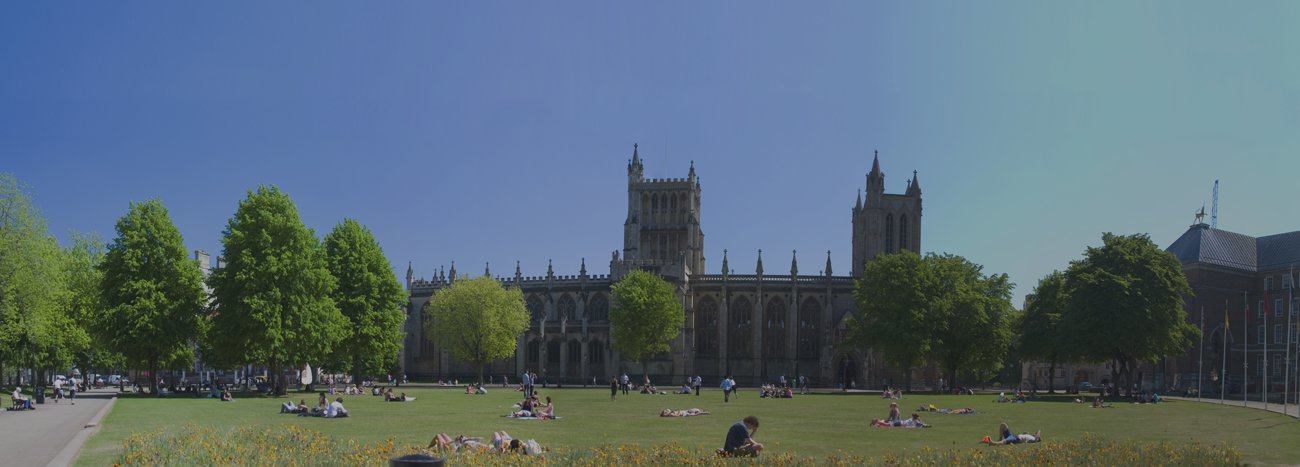Shrinking budgets vs growing expectations
People increasingly expect to access public sector services in the same way they order their products and services from a company like Amazon: with an effortless end-to-end customer experience, accessed through any of their digital devices.
Like most UK councils, Bristol City Council had a long way to go to meet that rising public expectation. Citizens were frustrated about not being able to do things like pay council tax online, and by disjointed service provision that meant apparently simple tasks were hard to achieve; council staff were frustrated by outdated back-office processes which meant a waste of time and money.
And the council faced large and potentially debilitating budget cuts.
It knew it had to do two things:
- improve the customer experience
- deliver a better service – but with less staff, for less money
The council’s urgent need was to reimagine its services. It knew there were big challenges ahead – but also an opportunity to do things in a radically different way.
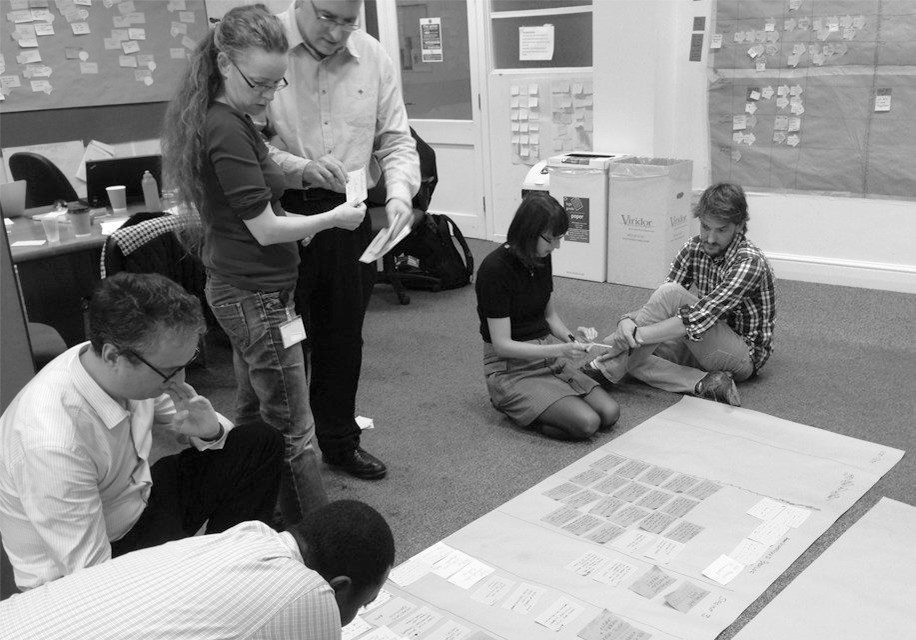
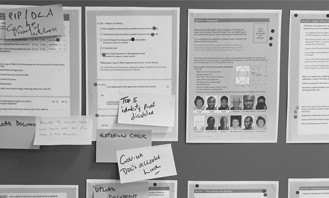
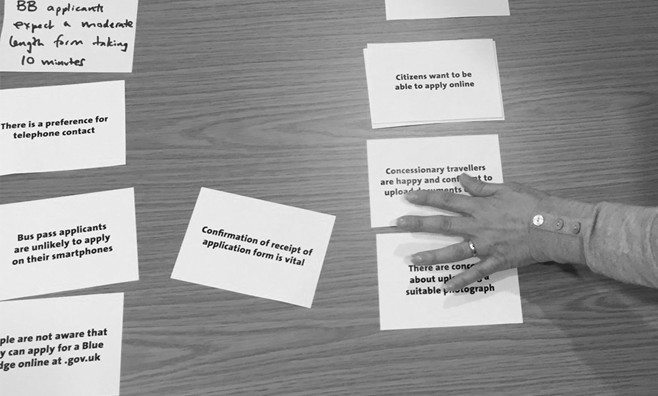
Discovering what it feels like
To move forward we had to understand what people needed – users, as well as people within the council. We started with a rigorous discovery process.
We went into Bristol and watched people engaging with different services. We asked them about their experiences. We talked to people at the council’s customer service points, in taxi ranks, in car parks, at bus stops, in libraries, in community centres and in people’s homes. We asked them how they experienced the services, where difficulties arose, what worried them and frustrated them most, how they would like to use them in future.
What we were really doing was finding out what it felt like to use the council’s services as this was a perspective that was lacking within the council itself – just as it is in many public and private sector organisations.

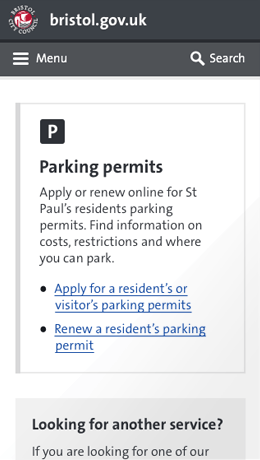

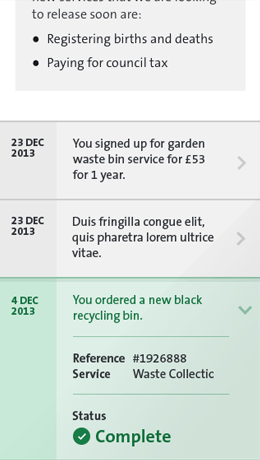

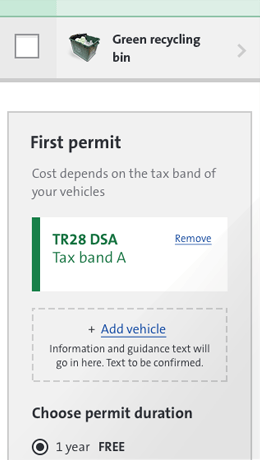
A scale of vulnerability
We began to identify which services would work with self-service digital access and which really needed person-to-person channels, by piecing together a scale of vulnerability.
At one end of the scale were people doing tasks like ordering bins and paying council tax, who wanted to complete these transactions as effortlessly as possible. At the other end of the scale were people who were heavily dependent on the council for housing and care, and for them, the most important thing was getting support to guide them through these options.
These insights meant the council could vary their responses depending on the service and the vulnerability of the service’s users.
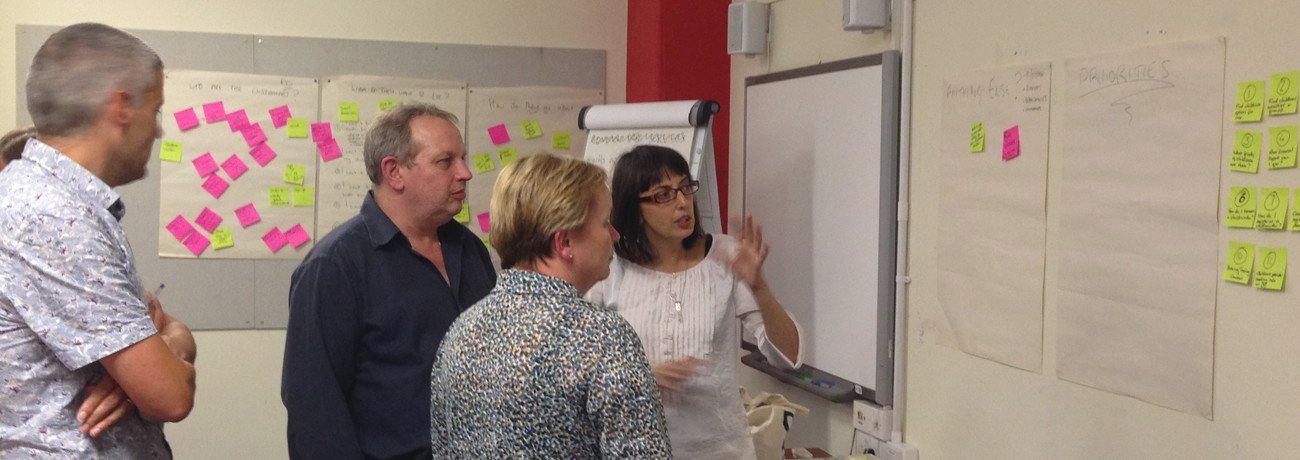
Smart tools
Together we defined a unifying vision:
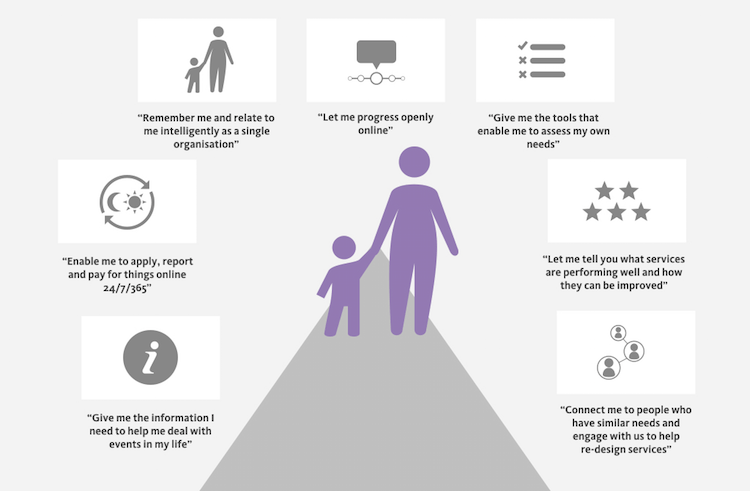
(view this image at a larger resolution)
Then, we piloted our user-centred approach on two services – waste and recycling, and parking. Through our work on these services, founded on speaking to customers about their experience and needs, we were able to construct the building blocks for the entire programme of service transformation giving the council a platform for service improvement and team growth. We put together:
- a searchable insight bank, distilled from our research findings, offering a holistic view of Bristol’s citizens
- a pattern library of reusable design interactions
- and because we know that expert in-house teams can deliver more quickly, cheaply and to higher standards, we trained and mentored a growing in-house service design capability that became more self-reliant as time went on
Bristol City Council’s users and their needs now inform every aspect of each transformed service. The council can make smarter decisions, allowing it to achieve the seemingly impossible: a better customer experience with less money.

